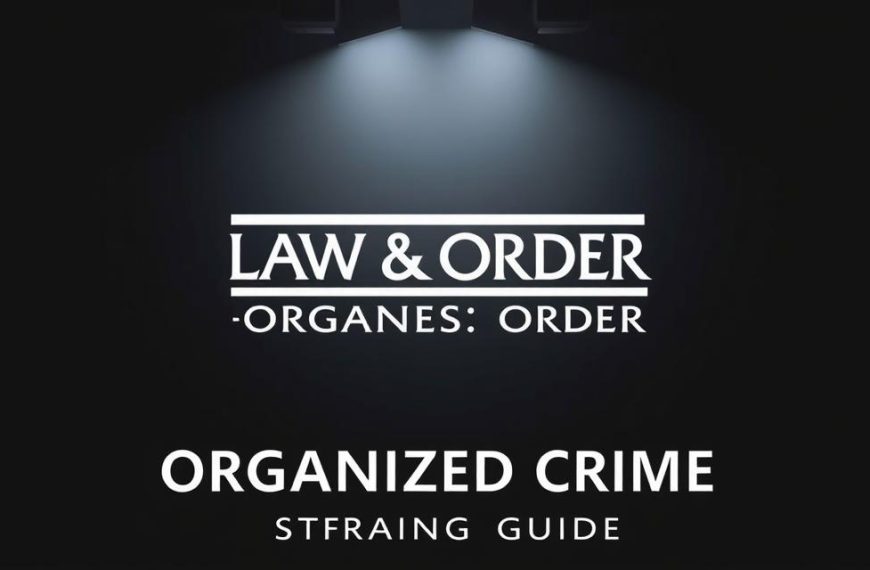Embarking on a legal career requires careful planning, particularly regarding the time commitment involved. In the UK, most undergraduate law programmes span three years for full-time students. Institutions like Oxford University exemplify this structure, offering both standard courses and extended four-year options with international study components.
Part-time routes provide flexibility, stretching curricula over additional years while reducing termly workloads. This approach suits those balancing professional or personal responsibilities. Across jurisdictions, programme lengths vary significantly – American institutions, for instance, often mirror the three-year model but with distinct accreditation requirements.
Prospective students should consider how specialisations or dual-degree tracks might extend their studies. The choice between accelerated pathways and extended programmes ultimately depends on individual circumstances and career objectives.
This guide explores these variables in detail, offering crucial information about academic timelines and practical considerations. Subsequent sections will address curriculum structures, qualification milestones, and strategies for navigating legal training efficiently.
Understanding the Path to a Legal Career
Legal qualifications unlock doors to diverse opportunities beyond courtroom advocacy. While many Oxford graduates enter the legal profession, their expertise often extends internationally – over 40% practise outside England and Wales. This global demand reflects the versatile skills cultivated through rigorous academic training.
- Criminal law: Advocacy roles in prosecution or defence
- Commercial law: Corporate advisory and transactional work
- Family law: Dispute resolution and child welfare cases
- Conveyancing: Property transaction management
Early career planning proves crucial. Choosing electives aligned with professional ambitions allows students to build niche expertise. Practical components like mock trials develop courtroom readiness, while internships offer real-world exposure.
Not all graduates pursue traditional roles. Legal training equips individuals with transferable assets:
- Advanced research capabilities
- Persuasive negotiation techniques
- Complex problem-solving frameworks
These competencies attract employers in sectors like compliance consultancy, public policy, and corporate governance. Proactive networking during academic years often determines access to premium graduate schemes or international secondments.
Overview of Law School Duration
Balancing academic commitments with personal circumstances significantly influences legal education timelines. Three primary pathways exist – standard full-time courses, extended part-time options, and combined degree tracks. Each structure caters to different needs while maintaining rigorous training standards.
Full-time Versus Part-time Programmes
Full-time courses typically span three years, ideal for those prioritising swift completion. Students immerse themselves in intensive study, covering core modules and electives efficiently.
Part-time alternatives stretch over four years, reducing term workloads. This suits professionals managing careers or family responsibilities alongside studies. Evening and weekend classes help learners balance multiple priorities.
Implications of Dual Degree Options
Combining legal qualifications with disciplines like business or international relations extends study periods. These joint programmes often add 12-24 months but enhance career versatility. Graduates gain expertise across sectors, though extended timelines delay professional entry.
| Programme Type | Duration | Workload | Best Suited For |
|---|---|---|---|
| Full-time | 3 years | 35 hours/week | Career-focused students |
| Part-time | 4 years | 20 hours/week | Working professionals |
| Dual Degree | 4-5 years | 40 hours/week | Cross-industry specialists |
Financial planning remains crucial – extended programmes increase tuition costs but may offer higher earning potential. Prospective students should weigh immediate sacrifices against long-term career advantages when selecting their pathway.
How Long Is Law School: UK Perspective
British legal education stands out for its rigorous yet flexible academic frameworks. Institutions like Oxford University exemplify this balance, offering two distinct undergraduate pathways. Course I delivers core legal training across three years, while Course II extends to four years with European study components.
Comparative Study of Law School Length
Oxford’s unique BA in Jurisprudence differs from traditional LLB programmes but meets the same professional standards. Both courses provide foundational knowledge recognised by the Bar Standards Board. The four-year variant includes language training and international exposure – valuable assets for global careers.
| Programme | Duration | Key Features | Professional Recognition |
|---|---|---|---|
| Standard Course | 3 years | Core legal principles | Qualifying Law Degree |
| European Track | 4 years | International placements | Enhanced language skills |
Compared to common law jurisdictions like Australia or Canada, UK programmes often complete faster. American students typically require seven years (undergraduate + JD), while British counterparts enter the profession earlier. This efficiency attracts international learners seeking respected qualifications.
Recent reforms maintain the three-year model but encourage practical skills integration. Prospective students should verify course accreditation if planning overseas practice, as some jurisdictions require supplementary exams.
Law School Structure and Course Layout
The architecture of legal education programmes shapes both learning outcomes and professional readiness. Institutions design curricula to cultivate analytical rigour while meeting accreditation standards. Oxford’s approach exemplifies this balance, prioritising primary source analysis over textbook summaries.
Core Curriculum and Standard Subjects
Foundational courses establish essential legal frameworks. First-year students typically engage with Criminal Law, Constitutional Law, and Roman Private Law principles. These subjects develop skills in case interpretation and statutory analysis.
Advanced years introduce specialised areas:
- Tort law: Civil wrongs and compensation
- Contract law: Binding agreements
- Land law: Property rights systems
Jurisprudence and EU Law feature prominently, encouraging critical evaluation of legal philosophies. This layered structure ensures comprehensive knowledge acquisition across public and private domains.
Year-by-Year Academic Progression
Initial terms focus on mastering legal terminology and research methodologies. By the second year, learners tackle complex scenarios involving multiple subjects. Mock negotiations and appellate arguments become regular exercises.
Final-year courses demand sophisticated synthesis:
- Trusts: Fiduciary obligations
- Administrative law: Governmental powers
- Electives: Niche specialisations
Assessments evolve from examinations to dissertation projects, testing applied reasoning. This progression mirrors professional demands, preparing graduates for Bar training or corporate roles.
Academic Requirements and Entrance Criteria
Securing a place in competitive programmes demands meeting rigorous academic benchmarks. Oxford’s requirements exemplify this standard: AAA at A-levels or 38 International Baccalaureate points. These grades reflect the analytical prowess needed for legal studies.
Standardised testing forms another critical layer. All candidates complete the LNAT, assessing reasoning skills through essay and multiple-choice sections. Preparation strategies often involve practising past papers and honing argumentation techniques.
Admissions panels prioritise holistic evaluations. Strong personal statements demonstrate intellectual curiosity, while interviews test problem-solving under pressure. Extracurricular activities showcasing leadership or debate skills strengthen applications significantly.
Contextual admissions policies recognise diverse backgrounds. Universities may adjust entry criteria for those facing educational disadvantages. Mature students often benefit from foundation years bridging knowledge gaps before degree courses.
Subject choices at A-level prove strategic. While no specific disciplines are mandatory, essay-based subjects like History develop vital communication skills. Mathematics fosters logical thinking applicable to contractual analysis.
Detailed Look at the 1L Year
The initial phase of legal training establishes critical frameworks for professional success. Most programmes structure this foundational year around six compulsory courses designed to build analytical rigour. These include Civil Procedure, Constitutional Law, and Torts – each demanding intensive case law analysis.
Foundational Subjects and Examinations
First-year students tackle a standardised curriculum across core areas:
- Contracts: Formation and breach principles
- Property: Ownership rights and land use
- Criminal Law: Offence classifications
Assessment typically hinges on single end-of-term exams, requiring synthesis of complex materials. Successful candidates employ spaced repetition techniques and practice papers to master application-based questions.
Moot Court and Legal Writing
Practical skills development runs parallel to theoretical studies. Legal Research & Writing classes train learners in:
- Case briefing methodologies
- Persuasive argument structuring
- Citation protocols
Moot court simulations provide courtroom exposure, with participants arguing hypothetical appeals before academic judges. These exercises build advocacy skills while reinforcing substantive law knowledge.
Adapting to the workload proves challenging initially. Many institutions offer peer mentoring schemes to ease the transition. Early mastery of time management strategies often correlates with improved academic outcomes and internship prospects.
Advancing Through the 2L Year
The second year of legal studies introduces greater autonomy, allowing learners to tailor their academic journey. This phase combines specialised coursework with strategic career planning, creating a bridge between classroom theory and professional practice.
Elective Courses and Career Preparation
Students gain control over their timetables, selecting from advanced modules like Criminal Procedure or Trusts & Estates. Strategic choices prove vital – many prioritise subjects tested on the Bar exam while exploring niche interests. One careers adviser notes: “Balancing core requirements with passion projects demonstrates both pragmatism and initiative to employers.”
Recruitment activities intensify during autumn term. Leading firms conduct on-campus interviews, seeking candidates for summer associate placements. Successful applicants often secure post-graduation roles through these schemes, making preparation crucial.
Participation in Extracurricular Law Activities
Beyond academics, second-year learners engage in skill-building initiatives:
- Law review editorial teams hone research precision
- Moot court competitions refine courtroom advocacy
- Legal clinics provide hands-on client advisory experience
These activities complement mandatory Professional Responsibility courses and MPRE exam preparation. Networking events further connect students with practitioners, fostering relationships that often yield work opportunities.
Time management becomes paramount as academic and professional demands escalate. Many institutions offer workshops to help learners maintain performance across competing priorities.
Final Year (3L) and Post-Graduation Steps
The culmination of legal studies marks a pivotal transition from academic theory to professional practice. Final-year learners gain priority access to advanced modules, tailoring timetables to align with vocational goals. Many students focus on bar exam preparation, selecting subjects like Evidence Law or Civil Litigation that combine practical relevance with assessment value.
Specialised Law Courses for the Bar Exam
Strategic course selection enhances examination readiness while deepening expertise. Electives in Tax Law or Intellectual Property allow specialisation, equipping graduates for niche roles. Concurrent revision programmes help balance academic deadlines with intensive test preparation.
Job Recruitment and Career Networking
Recruitment activity peaks during this phase, with firms hosting on-campus interviews and networking events. Alumni mentorship schemes often prove instrumental in securing training contracts. Successful candidates typically finalise roles months before graduation, easing the shift into professional environments.
As the final year concludes, graduates face two critical milestones: completing degree requirements and passing vocational exams. Proactive planning ensures a smooth transition from lecture halls to courtrooms or corporate offices.



















